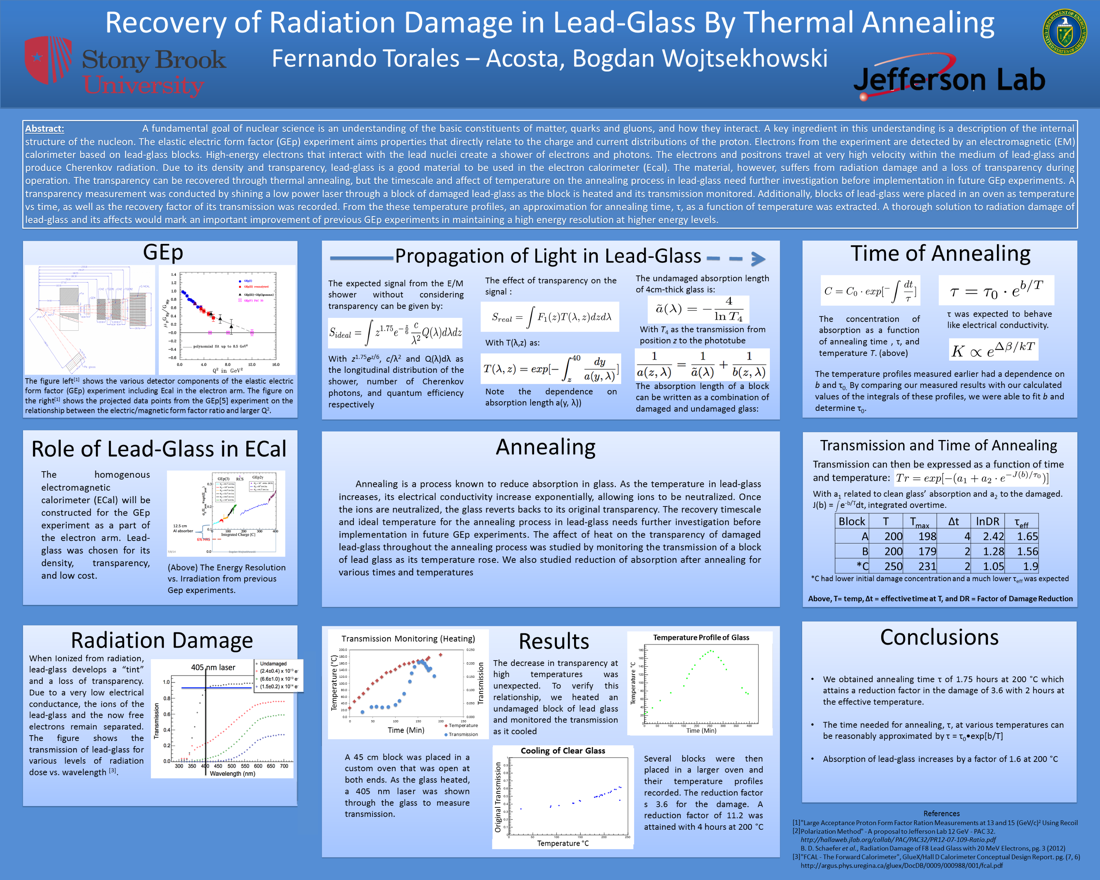Undergraduate Research at Jefferson Lab
Recovery of Radiation Damage in Lead-Glass
Student: Fernandp Torales-Acosta
School: State University of New York at Stony Brook
Mentored By: Bogden Wojtsekhowski
A fundamental goal of nuclear science is an understanding of the basic constituents of matter, quarks and gluons, and how they interact. A key ingredient in this understanding is a description of the internal structure of the nucleon. The elastic electric form factor (GEp) experiment aims to measure properties that directly relate to the charge and current distributions of the proton. Electrons from the experiment are detected by an electromagnetic (EM) calorimeter based on lead-glass blocks. High-energy electrons that interact with the lead nuclei create a shower of electrons and photons. The electrons and positrons travel at very high velocity within the medium of lead-glass and produce Cherenkov photons. Due to its density and transparency, lead-glass is a good material to be used in the electron calorimeter (Ecal). The material, however, suffers from radiation damage and a loss of transparency during operation. The transparency can be recovered through thermal annealing, but the timescale and affect of temperature on the annealing process in lead-glass need further investigation before implementation in future GEp experiments. A transparency measurement was conducted by shining a low power laser through a block of damaged lead-glass as the block is heated and its transmission monitored. Additionally, blocks of lead-glass were placed in an oven as temperature-time profile, as well as the damage reduction factor were recorded. we were able to obtain an expression for the characteristic annealing time as a function of temperature modeled after the electrical conductivity of glass. A thorough understanding of thermal annealing in lead glass would allow GEp experiments to maintain high energy resolution and contribute to the success of future experiments.

Citation and linking information
For questions about this page, please contact Education Web Administrator.
